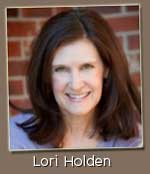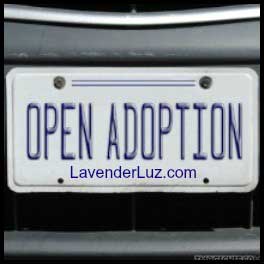Author and Blogger Lori Holden continues her series of contributions to the Adoption STAR blog by answering our questions about open adoption.
 When my husband and I embarked on the journey to adopt, everything we “knew” about adoption was from decades past:
When my husband and I embarked on the journey to adopt, everything we “knew” about adoption was from decades past:
- You waited on a long list until the agency matched you with a situation. Top of the list of criteria for the match? Your place in line.
- You tried to make the building of your family as close to “normal” (read: biological) as possible. You didn’t talk much about the adoption, either inside or outside of the family, and you certainly didn’t have any contact with birth parents.
- As the child grew, you continued not talking about adoption. Surrounding my friends who had been adopted was an air of secrecy. When we did speak of adoption, it was in hushed voices. These friends didn’t know much about their birth families, their birth story, or their origins. And it would hurt their parents too much to wonder too much. So they tried not to.
Wikipedia further explained, “Although open adoptions are thought to be a relatively new phenomenon, in fact most adoptions in the United States were open until the twentieth century.” I had always thought that closed adoptions were the “default setting” of the ages.
Far from being newfangled, it turns out that open adoption had always been the norm, with closed adoptions being a 6-decade aberration. Adoptions became closed when social pressure mandated that families preserve the myth that they were formed biologically.
My husband and I learned all that we could about open adoption. Over the years, we replaced the myths with these ideas:
- Open adoption isn’t about waiting passively in line — it’s about who we are. A couple in an unintended pregnancy would make a conscious decision about us parenting their baby. The criteria for their decision would be our values, our bundle of experiences, and our vision for the future — US!
- Why try to deny that our family was built by adoption? Is my ego so fragile that acknowledging the birth mothers of my children takes away from me? Loving and respecting our children’s birth parents is just another way to love and respect our children.
- Walking a fine line between dwelling on adoption it and denying it, we tell our children (now ages 11 and 9) their adoption stories once in awhile. We encourage them to talk with us about it as their cognitive skills grow. I believe that anything kept under a rock can get moldy, and I want their adoption tales to bask in sunshine.
- There are many more benefits to open adoption. Our children have access to their medical histories and to clans who look like them and love them.
- Also, our children will not have to go through the potential minefields of search and reunion just to get answers to their normal wonderings.
Open adoption changed everything I thought I knew about adoption. If I could send a message to the pre-adoption me at the turn of the century, I would tell myself, “Lori, don’t be scared to open up your heart to this experience.”

Lori Holden writes regularly at LavenderLuz.com about parenting and living mindfully. Her book, The Open-Hearted Way to Open Adoption: Helping Your Child Grow Up Whole, is available for pre-order on Amazon. She has written for Adoptive Families magazine, Parenting magazine and for BlogHer and MileHighMamas.com, a Denver Post site. On Twitter she’s @LavLuz and you can also find her on Facebook. She is the keynote speaker at the March 9 Parenthood for Me Gala, sponsored in part by AdoptionSTAR.
Read More: On Being Considered the Real Parent, A Clear Definition of Open Adoption, Dispelling Adoption Myths, Common Myths and Facts about Birth Fathers
